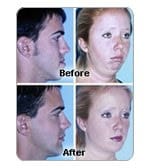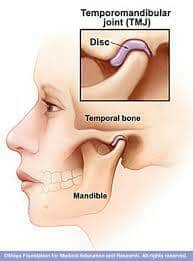A concussion is the most common and least serious type of traumatic brain injury is called a concussion. The word comes from the Latin concutere, which means “to shake violently.” According to the CDC, between 2001 and 2009, an estimated 173,285 people under age 19 were treated in hospital emergency rooms for concussions related to sports and recreation activities. Other causes include car and bicycle accidents, work-related injuries, traumatic dental injuries, and fighting. Top Questions On Concussion In this article How can you tell if you have had a concussion? Is it always serious? And what should you do if…
Author: Isreal Olabanji DST RN
Lassa fever is a zoonotic disease, meaning that humans become infected from contact with infected animals. The animal reservoir, or host, of Lassa virus, is a rodent of the genus Mastomys, commonly known as the “multimammate rat.” Mastomys rats infected with Lassa virus do not become ill, but they can shed the virus in their urine and faeces. Because the clinical course of the disease is so variable, detection of the disease in affected patients has been difficult. When the presence of the disease is confirmed in a community, however, prompt isolation of affected patients, good infection prevention and control…
What You Should Know About Wisdom Teeth or Impacted Tooth Serious problems can develop from partially impacted teeth that are your wisdom teeth, such as pain, infection, and crowding of, or damage to, adjacent teeth and even caries. For totally impacted teeth (wisdom teeth), more serious problems can occur such as (dental abscess, bad breath, canker/cold sores, bulimia nervosa, and tooth decay) if the sac that surrounds the impacted tooth (wisdom teeth) fills with fluid and enlarges to form a cyst. Most people start getting their wisdom teeth (also called the third molar) when they reach their late teens or…
Corrective jaw surgery also called orthognathic surgery can improve chewing, speech, and breathing. While your appearance may be dramatically enhanced as a result of your surgery, orthognathic surgery is performed to correct functional problems. This procedure performed in dental surgery to correct a wide range of minor and major skeletal and dental irregularities, including the misalignment of jaws and teeth. Am I a Candidate for Corrective jaw surgery (orthognathic) surgery? Your dentist will work together with you to determine whether you are a candidate for corrective jaw surgery. The dentist determines which corrective jaw surgical procedure is appropriate and performs…
The temporomandibular joint (TMJ) is a small joint located in front of the ear where the skull and lower jaw meet. It permits the lower jaw (mandible) to move and function. The temporomandibular joint disorders are not uncommon and have a variety of symptoms. Symptoms of Temporomandibular Joint (TMJ) disorder Patients may complain of earaches, headaches and limited ability to open their mouth. They may also complain of clicking or grating sounds in the joint and feel pain when opening and closing their mouth. What must be determined, of course, is the cause. Causes of Temporomandibular Joint (TMJ) Disorders Determining…




